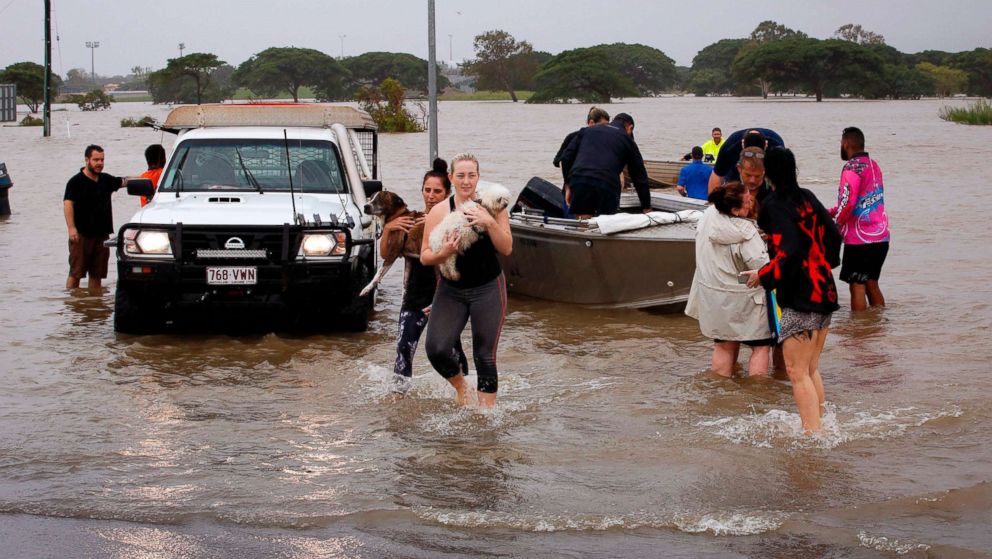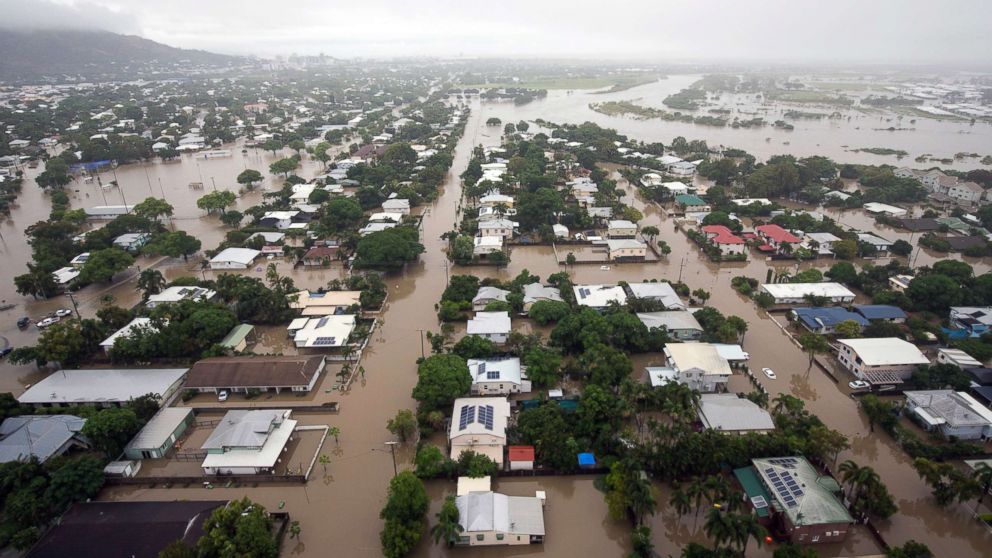Crocodile warning issued as Australian city faces 'unprecedented' levels of flooding
LONDON -- The Australian government is warning citizens to be on the look out for crocodiles and snakes in the streets amid severe rainfall and flooding in north Queensland over the past few days.
“Crocodiles prefer calmer waters and they may move around in search of a quiet place to wait for floodwaters to recede,” Leeanne Enoch, Queensland's minister for environment, said in a statement Monday.
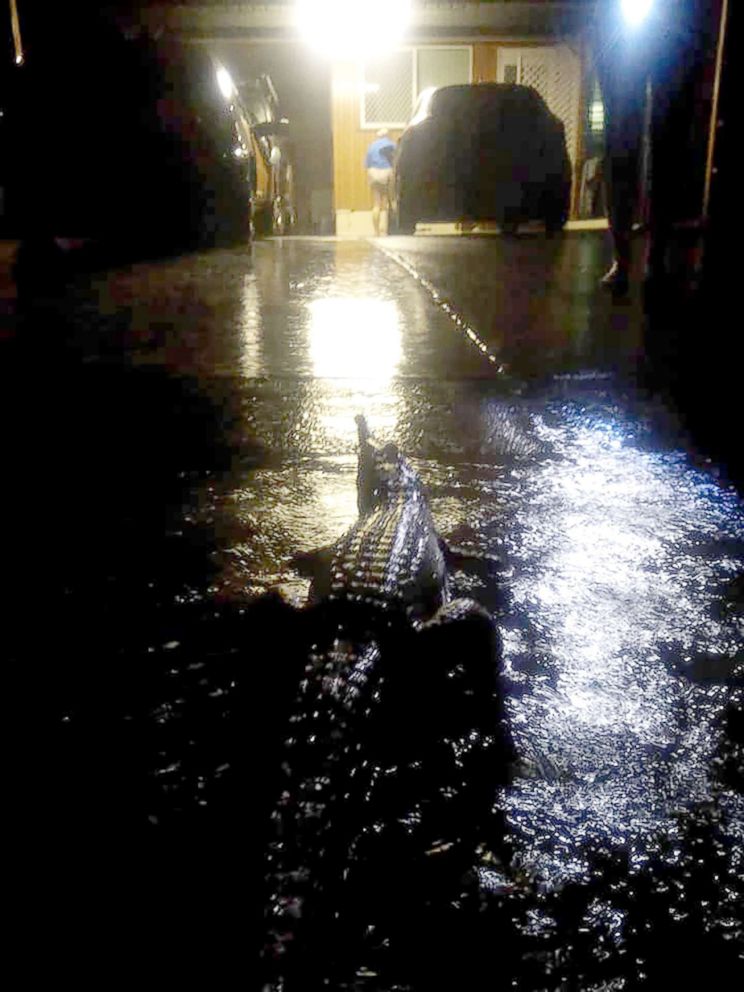
She continued, “Crocodiles may be seen crossing roads, and when flooding recedes, crocodiles can turn up in unusual places such as farm dams or waterholes where they have not been seen before. Similarly, snakes are very good swimmers and they too may turn up unexpectedly.”
The coastal city of Townsville has been the most affected by the flooding. Local media outlet 7news posted a video on Twitter of an 11-foot crocodile crawling up a highway to the north of the city. One image of a crocodile roaming the streets has been shared over 20,000 times on Facebook.
Townsville has been brought to a standstill by severe flooding after an all-time record rainfall, the premier of Queensland, Annastacia Palaszczuk, said Saturday. The town has experienced the equivalent of 3.2 feet of rainfall over the past week.
Over 900 people are in evacuation centers and all local schools have been closed, Palszczuk told Australia's "The Today Show."
"It's basically not just a one in 20-year event, it's a one in 100-year event," she said Saturday, according to the AFP.
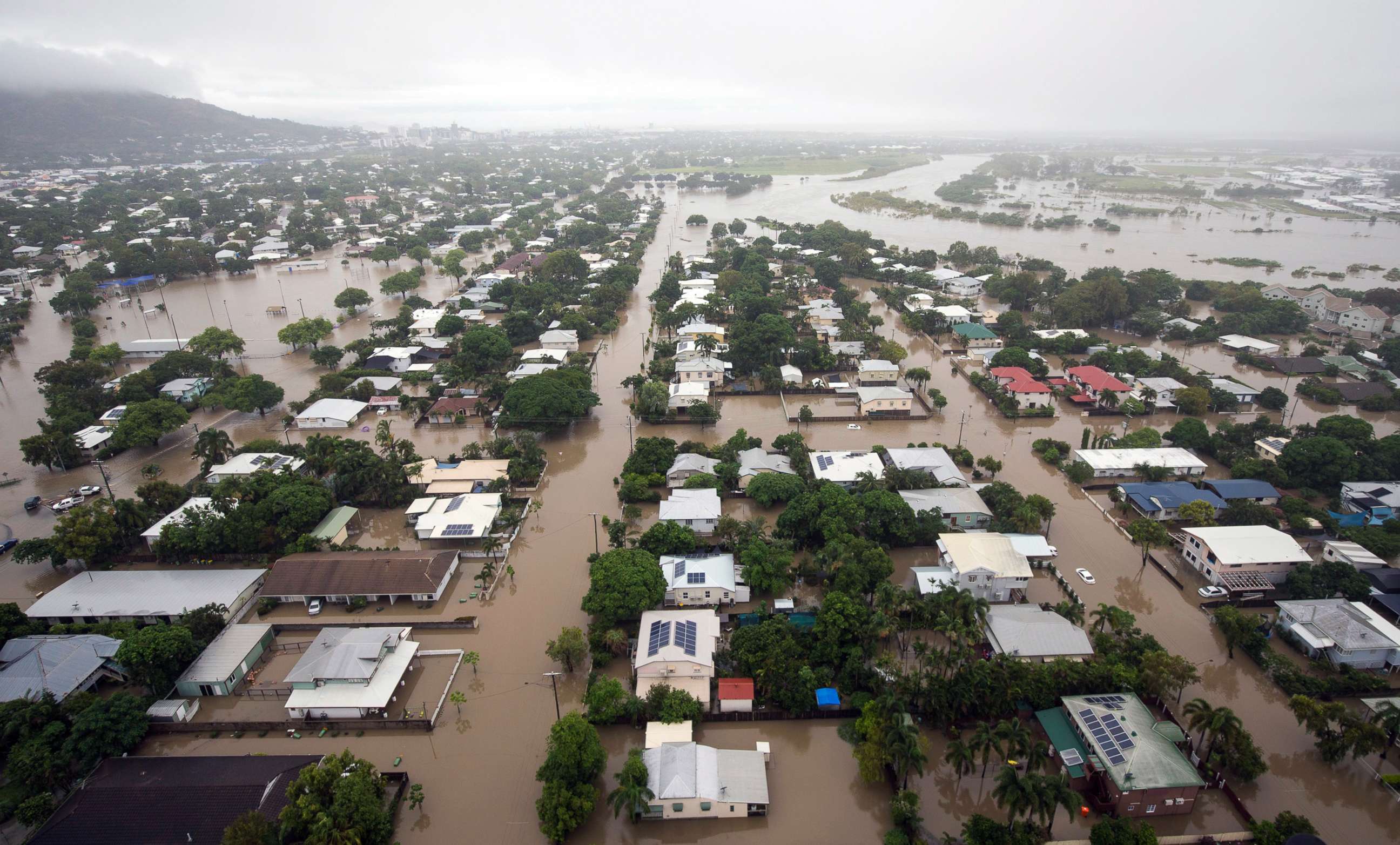
Heavy rain continues to drench Townsville, with 6 to 10 inches of rainfall lashing the city since Sunday morning, according to the Townsville Bulletin. Around 17,000 properties in Townsville are believed to be without power.
The Queensland Bureau of Meteorology issued a major flood warning for Townsville on Sunday night, saying that “conditions will change rapidly & continuously” due to “unprecedented areas of flooding.”
Queensland police and the army have been drafted to help respond to the crisis.
Local authorities have used dam releases at the local Ross River dam to ease the impact of the rainfall, the Bureau of Meteorology said, but there remains a “risk to life and property.”
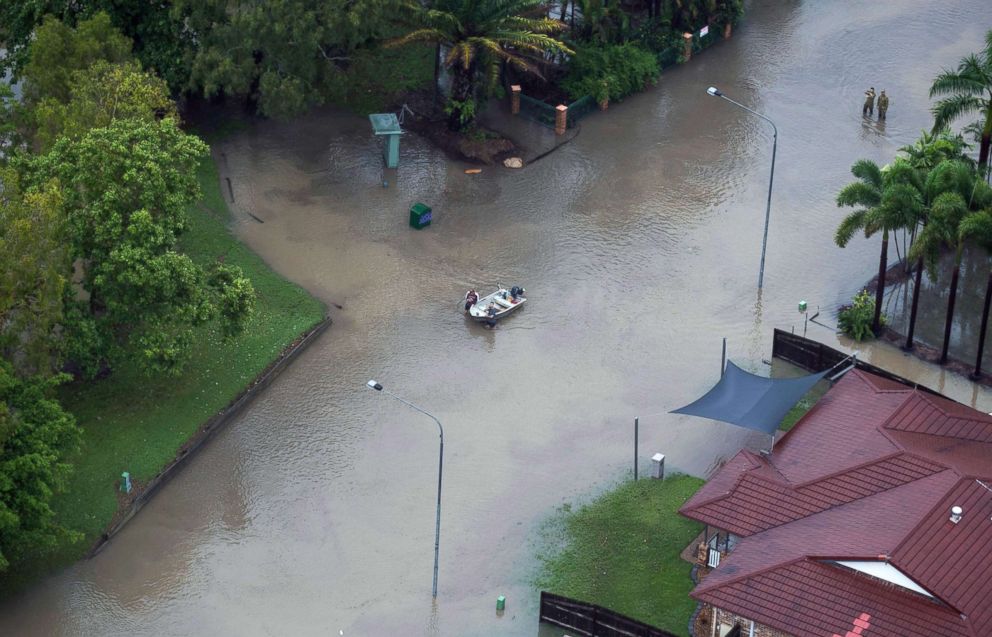
The flooding comes as Australia experienced its hottest month on record in January, according to the BBC.
The extreme weather had a significant impact on the local environment. Last month, 90 wild horses were found dead in the Outback because of dried up watering holes.
